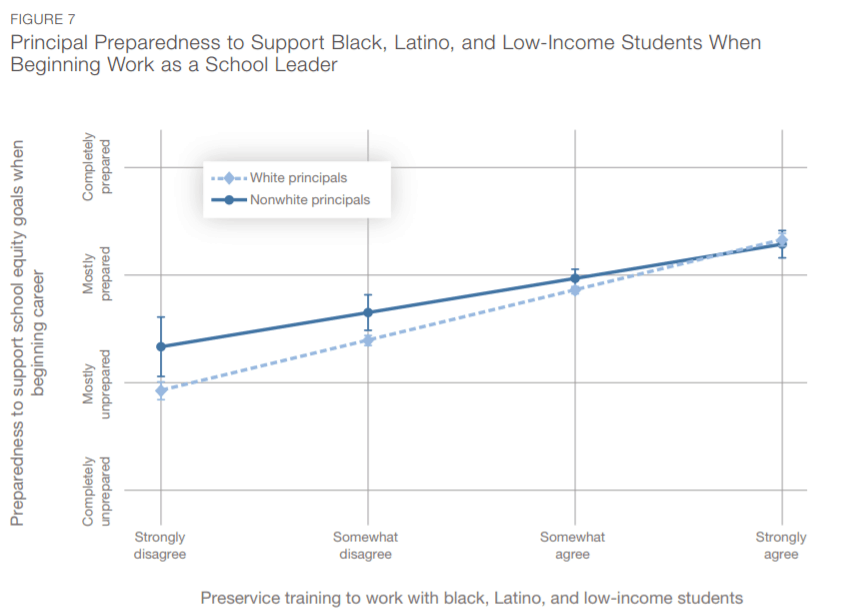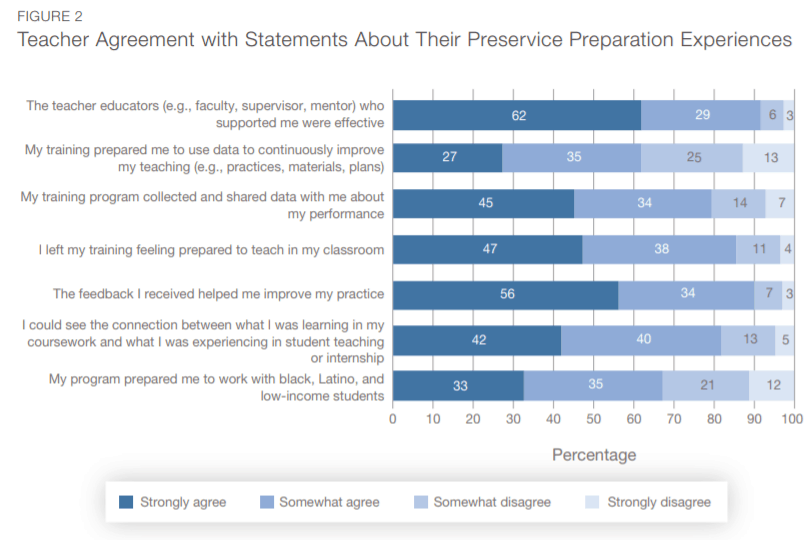Contextual Healing
Pew released their Stateline Legislative Review 2019 this week, which gives an update on policy and politics in state legislatures in 2019. This year’s review focuses on five topics. Each topic explores the policies state legislatures are passing or attempting to pass this legislative session. This session, North Carolina introduced legislation relating to renewable energy standards.
- How new Democratic majorities are playing out in six states
- Women’s health care
- Data privacy
- Voter access
- Renewable energy standards
Dropping Knowledge
Only about 60% of principals and teachers feel their educator preparation programs prepared them to support black, Latino, and low-income students, according to a new survey from Rand. Given that the majority of public school students are now students of color, there is clearly a need for educators to receive more support and training during their preservice programs. More teachers responded that they felt prepared than principals, and nonwhite principals reported feeling better prepared than white principals.

The other area where a large percentage of teachers said they felt unprepared was using data to continuously improve their practices — only 27% of teachers strongly agreed they felt prepared to use data whereas 13% strongly disagreed and 25% somewhat disagreed with that statement. See the other statements below.

For Your Consideration
Foreign Policy published an interesting piece on some of the reasons why fertility rates have dropped in many countries, including the U.S. where fertility rates have dropped below the replacement rate, meaning more people are dying than are being born. This is problematic for many reasons, primarily because it means the workforce is shrinking.
The article explores the relationship between gender equality and childbearing, arguing that the relationship is like a reverse J-shaped curve: childbearing falls as gender roles become more equal and then rises after the “full incorporation of egalitarian policies and norms.”
This idea has implications for countries like the U.S. trying to boost their fertility rates. Specifically, the authors argue that increased flexibility in work (including broadband access to enable remote work) and policies supporting working mothers and families (like parental leave) allow women to more easily balance work and family leading to higher fertility rates. Read the full piece here.
What we're reading
All public universities get private money, but some get much more than the rest
The University of North Carolina at Chapel Hill's endowment is larger than the rest of the endowments for the state's public universities, combined. This kind of disparity in giving is occurring in most states.... Read the rest-
Parents Are Giving Up Custody of Their Kids to Get Need-Based College Financial Aid
-
Living Near Trees, Not Just Green Space, Improves Wellbeing
-
The Persistence of Black College Students
-
The Labor Market’s Weak Spot: Jobs Making Stuff
-
Can avoiding meat and eggs help fight cancer?
-
With a Focus on Food Sovereignty, Rural Appalachian Ohio is Rebounding


